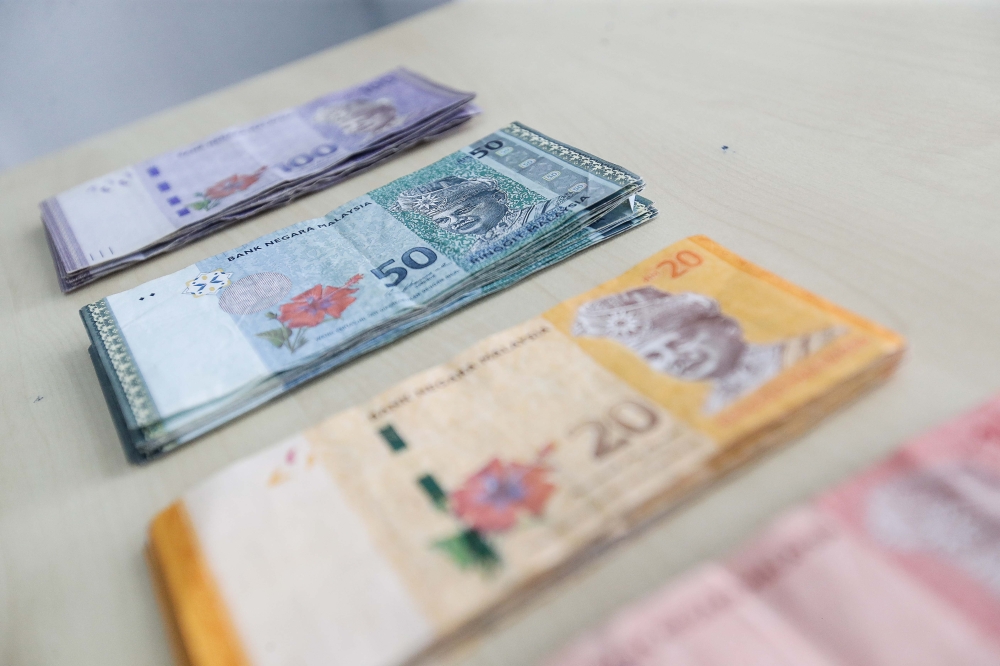PARIS, March 26 — She was a salacious icon of 20th century Paris — the brothel-keeper to the stars — and Netflix hopes the basis for another hit in the recent run of French successes.
In the 1960s and 1970s, Madame Claude, real name Fernande Grudet, had a client book that read like the guest list to a royal wedding: captains of industry, President John F Kennedy, Marlon Brando, the Shah of Iran...
There were enough secrets being divulged on her pillows to ensure protection from the authorities, as well as considerable interest from the secret services.
But in the latest telling, released on Netflix on April 2, the glamour in which her story was often shrouded is stripped away to show a darker reality.
“There is the image of Madame Claude: of Paris, beautiful dresses and big hotels, power... What interested me was what was happening behind the scenes,” director Sylvie Verheyde, 54, told AFP.
Behind the scenes were ties to organised crime, a life of emotional misery and a near-pathological lack of scruples: Madame Claude, it emphasises, always made sure to get her 30 per cent, even when the girls returned bruised and bloodied from an encounter gone wrong.
“Madame Claude built her mythology. She was a great liar, a fraud who said she wanted to ‘beautify vice’, which meant brushing all the ugliness under the carpet,” said Verheyde.
‘This isn’t love’
The director knows this world well: a grandmother and cousin both worked as prostitutes, and she tackled the subject already in her 2016 film Sex Doll.
Her new film stands in deliberate contrast to previous tellings, especially the erotic film of the same name from 1977, by Emmanuelle director Just Jaeckin.
“I think our era is much more ready for the reality and to put an end to the stereotypes of those years,” said Verheyde.
The sex in her film is deliberately unerotic: “This isn’t love, they are working!”
Grudet’s success did not last: she was twice convicted and imprisoned, first for tax evasion and then for a short-lived attempt to restart her prostitution racket in the 1990s.
She lived out her days in relative modesty in a small apartment on the south coast, estranged from her daughter, dying alone in 2015 at the age of 92.
But in her heyday, the mythology of Madame Claude was about more than sex, in which she herself claimed to have little interest.
Sex was a tool: a route into high society and to freedom in a man’s world. “There are two things that people will always pay for: food and sex. I wasn’t any good at cooking,” she famously said.
“For my own mother, who came from a working-class background and moved to Paris, Madame Claude was a role-model,” said Verheyde.
“I found that delusional, but actually, for a woman of her generation and her class, there were few successful female role-models with which to identify,” she said.
‘Hate, rage’
The part is played by Karole Rocher, known for hard-edged roles, particularly as a detective in hit show Braquo.
“Female gangster roles are still pretty rare,” said Rocher. “It’s interesting to play, for once, a female character that has this hate, this rage that we normally associate with men. A role that is so bitter, so unsympathetic, without being sexualised — I love it.”
As for Netflix, it will hope the film can build on the recent spell of success by shows such as Call My Agent, The Bureau and Baron Noir that have brought inevitable claims of a golden age for French TV.
The streaming platform had a major hit earlier this year with Lupin, the first time a French-language show had topped its chart worldwide.
Madame Claude, with its combination of sleaze, celebrity and gangsterism, seems well-placed for success — not least because it also serves as a commentary on the sexual politics of our time.
The #MeToo movement “allows us to look back at the path we’ve taken, to remember things that we have a hard time imagining these days”, said Verheyde.
“As in all film noirs, marginalised and outlaw characters speak to the society in which we are living.” — AFP






















